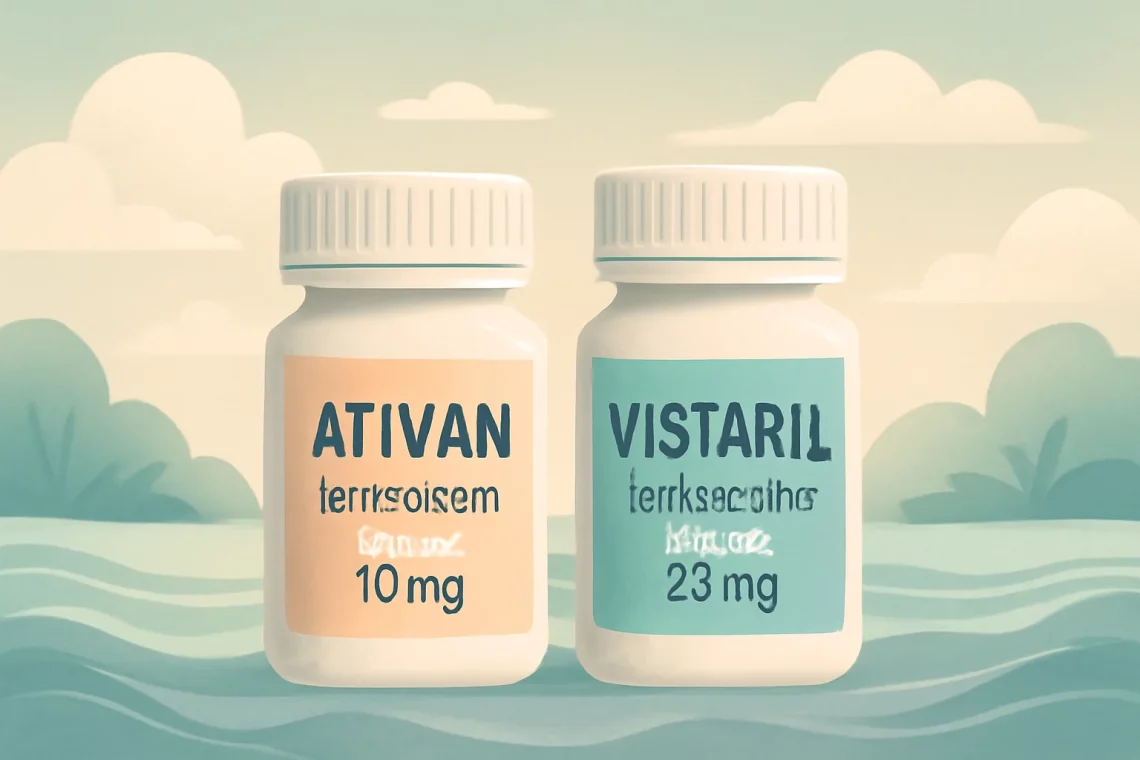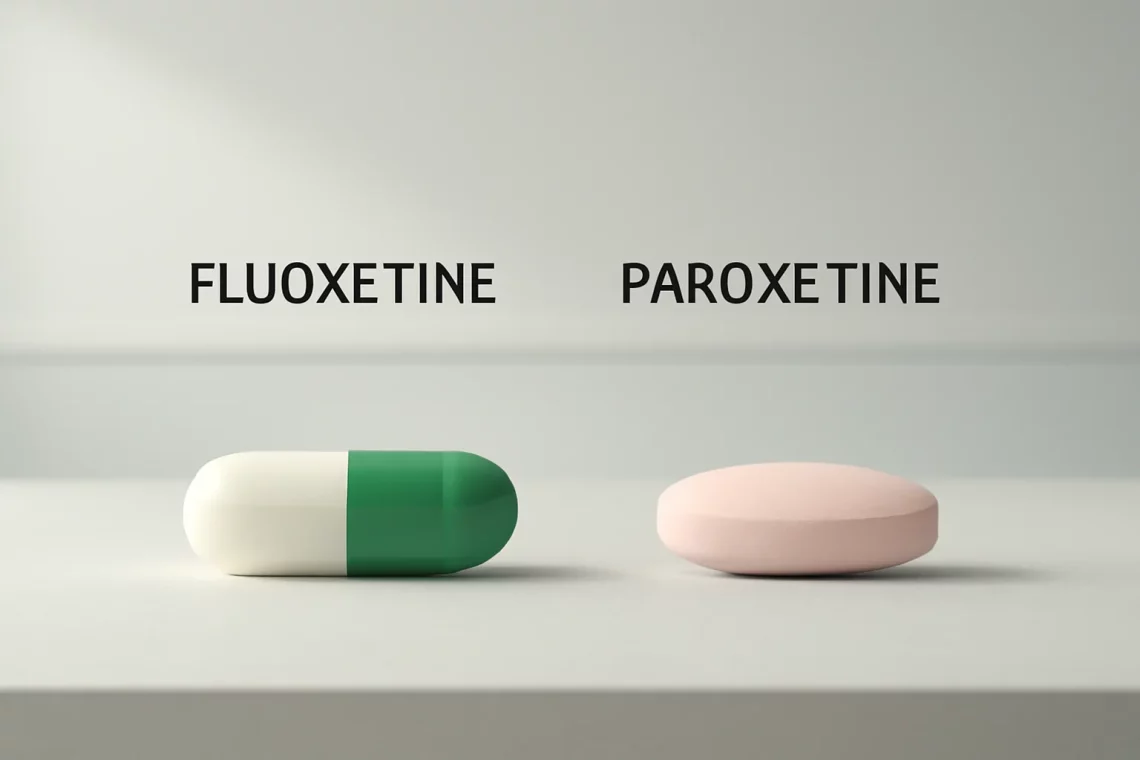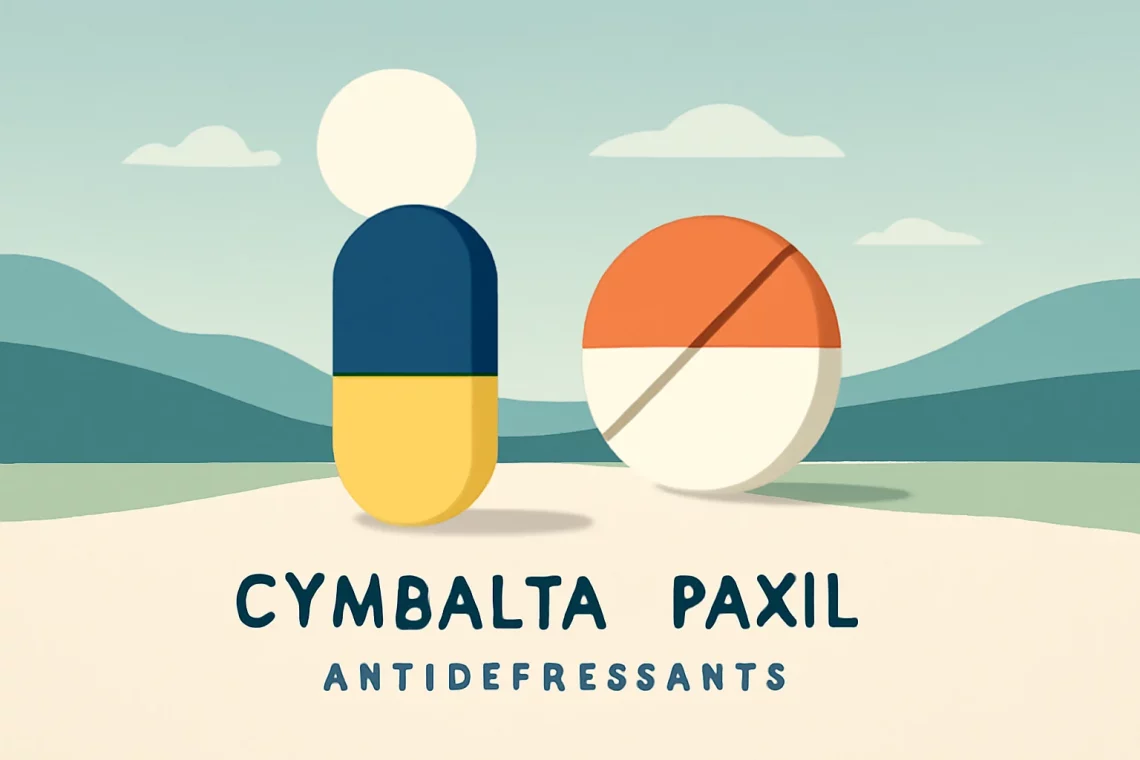-
Vraylar vs Geodon: A Comprehensive Comparison of Antipsychotic Medications
Vraylar and Geodon are both medications commonly used in the treatment of mental health disorders, particularly schizophrenia and bipolar disorder. Each of these drugs belongs to a class known as atypical antipsychotics, which are designed to help manage symptoms of these conditions by altering the effects of neurotransmitters in the brain. The choice between Vraylar and Geodon can significantly impact a patient’s quality of life, as both medications have different mechanisms of action, side effects, and efficacy profiles. In recent years, there has been a growing interest in understanding how these medications compare, as patients and healthcare providers alike seek the most effective treatment options available. Factors such as dosage,…
-
Xanax vs Buspirone: Understanding the Differences and Uses
Xanax and Buspirone are two medications commonly prescribed for the treatment of anxiety and related disorders. While both drugs aim to alleviate symptoms of anxiety, they function through different mechanisms and are used in varying clinical scenarios. Understanding these differences is crucial for individuals seeking effective treatment options for their anxiety. Xanax, known generically as alprazolam, is a benzodiazepine that works by enhancing the effects of a neurotransmitter called gamma-aminobutyric acid (GABA) in the brain, leading to a calming effect. On the other hand, Buspirone is an anxiolytic that operates through a different pathway, primarily affecting serotonin and dopamine receptors. The choice between Xanax and Buspirone can often confuse patients…
-
Ativan vs Vistaril: A Comprehensive Comparison of Anxiety Medications
Ativan and Vistaril are two medications often used to manage anxiety and related conditions, but they belong to different drug classes and have distinct mechanisms of action. Understanding these differences is crucial for patients and healthcare providers when determining the most appropriate treatment option. Both medications have their unique benefits and potential side effects, which can influence the choice between them. Ativan, a brand name for lorazepam, is a benzodiazepine known for its sedative properties. It is commonly prescribed for anxiety disorders, insomnia, and even certain seizure disorders. Vistaril, or hydroxyzine, is an antihistamine with anxiolytic properties, often used for anxiety relief and as a sedative prior to surgery. By…
-
Vraylar vs Saphris: A Comprehensive Comparison of Two Antipsychotics
Vraylar and Saphris are two medications commonly prescribed for the treatment of mental health disorders, particularly those within the spectrum of schizophrenia and bipolar disorder. Mental health challenges are complex and multifaceted, often requiring a personalized approach to treatment. As more individuals seek effective solutions, understanding the available options becomes crucial. Both Vraylar and Saphris belong to a class of medications known as atypical antipsychotics. These drugs have been developed to address symptoms associated with severe mental health conditions while aiming to minimize side effects often associated with traditional antipsychotics. Patients and healthcare providers alike must consider various factors when choosing a treatment plan, including efficacy, side effects, and individual…
-
Escitalopram vs Fluoxetine: Which Antidepressant Is Right for You?
Escitalopram and fluoxetine are two widely prescribed selective serotonin reuptake inhibitors (SSRIs) used primarily to treat depression and anxiety disorders. Both medications have gained popularity due to their efficacy and generally favorable side effect profiles compared to older antidepressants. The choice between these two drugs often hinges on various factors, including the specific diagnosis, individual patient history, and potential side effects. With mental health issues on the rise globally, understanding the nuances of these medications is becoming increasingly important for both healthcare providers and patients alike. As patients seek effective treatment options, it’s essential to consider not only the mechanisms of action but also the differences in efficacy, side effects,…
-
Xanax vs Ativan: Understanding the Differences and Uses
Xanax and Ativan are both medications commonly prescribed to manage anxiety and other related disorders. They belong to a class of drugs known as benzodiazepines, which are often utilized for their sedative and calming effects. While they may serve similar purposes, these medications differ in their chemical composition, usage, and side effects. Understanding the distinctions between Xanax and Ativan is crucial for patients and healthcare providers alike, as it can impact treatment decisions and overall patient outcomes. As anxiety disorders continue to affect a significant portion of the population, the choice between these two medications can be a pivotal one. In this article, we will explore the fundamental differences and…
-
Cymbalta vs Effexor XR: Choosing the Right Antidepressant for You
Cymbalta and Effexor XR are two prominent medications commonly prescribed for various mental health conditions, particularly depression and anxiety disorders. Both belong to a class of drugs known as serotonin-norepinephrine reuptake inhibitors (SNRIs), which function by enhancing the levels of serotonin and norepinephrine in the brain, neurotransmitters that play crucial roles in mood regulation. The growing prevalence of mental health issues has led to an increased focus on effective treatment options, making it essential for patients and healthcare providers to understand the differences and similarities between these two medications. As mental health awareness expands, so does the importance of informed decision-making regarding treatment options. Both Cymbalta and Effexor XR have…
-
Fluoxetine vs Paroxetine: Choosing the Right Antidepressant for You
Fluoxetine and Paroxetine are two widely prescribed medications in the class of selective serotonin reuptake inhibitors (SSRIs). These drugs are primarily used to treat various mental health conditions, including major depressive disorder, anxiety disorders, and obsessive-compulsive disorder. Although they share a similar mechanism of action, their chemical composition, side effects, and uses can differ significantly. As more individuals seek treatment for mental health issues, understanding the nuances between these two medications becomes increasingly important. In recent years, there has been a growing recognition of the significance of mental health, leading to more people seeking help. The stigma around mental health issues is gradually dissipating, prompting discussions about effective treatment options.…
-
Wellbutrin vs Effexor XR: Which Antidepressant Is Right for You?
Depression and anxiety disorders are prevalent mental health issues that affect millions of individuals globally. As the understanding of these conditions evolves, so too does the approach to treatment. While therapy often plays a vital role in managing mental health, pharmacological interventions are commonly employed to help alleviate symptoms. Among the various medications available, Wellbutrin and Effexor XR are two options frequently prescribed by healthcare professionals. Each medication functions differently within the body and is designed to address distinct aspects of mental health disorders. Wellbutrin, generically known as bupropion, is primarily used to treat major depressive disorder and seasonal affective disorder. It is unique in its mechanism of action, as…
-
Cymbalta vs Paxil: Comparing Two Popular Antidepressants
The landscape of mental health treatment has evolved significantly over the years, with a variety of medications available to help individuals manage conditions such as depression and anxiety. Among these medications, Cymbalta and Paxil have gained considerable attention for their effectiveness in treating mood disorders. While both of these drugs belong to different classes of antidepressants, they are often compared due to their similar applications and potential side effects. Cymbalta, known generically as duloxetine, is a serotonin-norepinephrine reuptake inhibitor (SNRI) that is commonly prescribed for depression, generalized anxiety disorder, and chronic pain management. Paxil, or paroxetine, is a selective serotonin reuptake inhibitor (SSRI) that is primarily used to treat major…






































